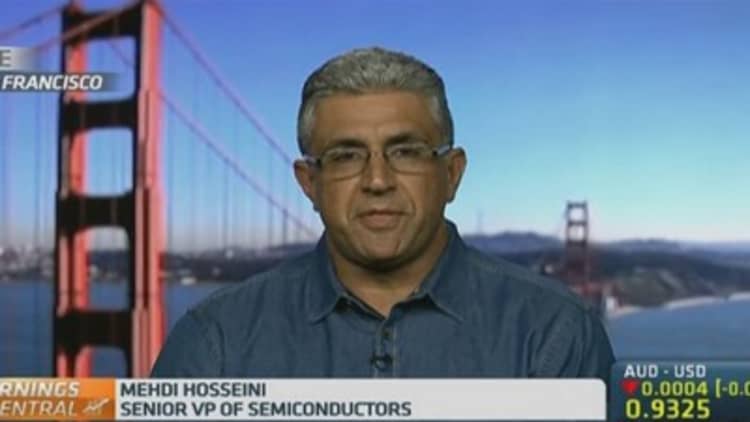Samsung Electronics is in dire need of crisis management, analysts say, as ineffective product differentiation sparks margin erosion and a decline in market share.
Until recently the world's largest smartphone marker was considered an unstoppable force. However, with key rival Apple getting its groove back and intensifying competition from low-end handset manufactures in emerging markets, things don't look so rosy anymore.
Shares of Samsung are down 10 percent year to date, far under-performing Apple shares, which are up 28 percent.
"Samsung is currently in crisis mode," CW Chung and Taeyoung Kim, analysts at Nomura wrote in a note titled 'Crisis management ability much needed' in which they downgraded their price target on the stock to 1.55 million won from 1.8 million won. Samsung shares last traded at to 1.23 million won ($1,210).
Read MoreSamsung Elec sees tough Q2 after profit slips
Profitability is deteriorating more steeply than expected, Chung and Kimg said, warning Samsung is unlikely to meet third quarter guidance for a 10 percent on-quarter rise in smartphone shipments and 10 percent decline in average selling price (ASP).
Mobile carriers appear reluctant to bear the inventory burden that resulted from Samsung's unsuccessful product differentiation, especially ahead of Apple's iPhone 6 launch expected in September, according to Chung and Kim.
"Hence, there could be some potential downside in terms of ASP and shipments for high-end," they said.
Furthermore, intensifying competition from Chinese players will present a major headwind to the company's mid-to-low end smartphone business.

"Though we previously anticipated recovery in the mid- to low-end smartphone market sometime in the third quarter following the inventory correction of existing 3G products in the second quarter (given that Chinese carriers provide subsidy mainly for 4G products), a price war or marketing cost war appears to be starting amidst the intensifying competition against Chinese players," they said.
Reality check
Samsung needs to take swift action to ensure that it remains competitive in the mid-to-low end segment, said Tom Kang, research director Counterpoint Research.
"Samsung has put too much focus on beating Apple in the high end. They should admit that they have lost the battle in the premium segment and do what's necessary to prevent losing the battle in mid-to-low tier," he said.
Read MoreSamsung bull slashes price target on stock
Samsung's market share in the premium segment - phones in the $400 plus range - declined to 38 percent as of June 2014, down from 51 percent in the same period a year earlier. By contrast, Apple's market share rose to 45 percent from 28 percent over the same period.

One factor Samsung can address immediately is pricing on its mid-to-low end phones.
"I don't think they were expecting price erosion to happen so rapidly in the past six months," he said.
The swift rise of budget smartphone makers such as Xiaomi in China and Micromax in India has set the stage of a price war in the smartphone space. In the second quarter, Xiaomi knocked Samsung off its spot as the top selling smartphone brand in China.
Will Samsung pull through?
While Samsung is struggling due to its "over-confidence", Chung and Kim of Nomura are optimistic it will overcome headwinds and regain its momentum.
"We anticipate that the company will successfully employ its crisis management skills to overcome the crisis (as evidenced in the past) through its own crisis management techniques. Hence, we expect further downside to Samsung's share price to be limited," they said.
Read MoreWhy Apple'snext iPhone will be bigger than people think
Samsung is beginning to respond to some of the market's warnings over the past two years about sticking to the same design concept and the slow progress of its software and content ecosystem.
"Though it seems a bit late at this point, the company appears to be striving to improve on its product line-up through design upgrades (metal casing, bended display, foldable display, etc)," they said.


